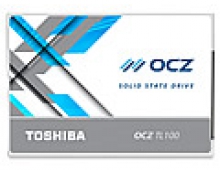OCZ Octane 256GB SSD review
6. Benchmarks - page 4
Review Pages
We proceed to IOMeter benchmark. Iometer is run by using workstation and database patterns for queue depths (outstanding I/Os) of two and 32, representing very light and moderate loads. Iometer is both a workload generator (that is, it performs I/O operations in order to stress the system) and a measurement tool (that is, it examines and records the performance of its I/O operations and their impact on the system). The app's ability to bombard drives with an escalating number of concurrent IO requests also does a nice job of simulating the sort of demanding multi-user environments that are common in enterprise applications. It can be used for measurement of the performance of an SSD. We run the IOMeter tests using the Xtreme Benchmark template .
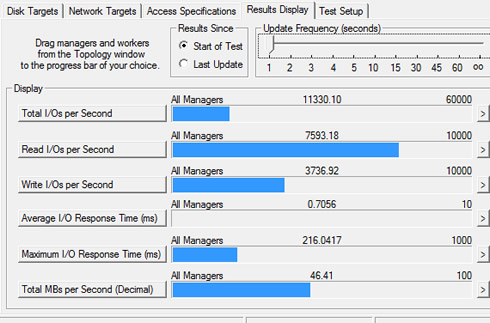
With just 11330.1 combined IOPS, the Octane 256GB SSD is positioned somewhere in the middle of the performance comparison graph, as you see below:
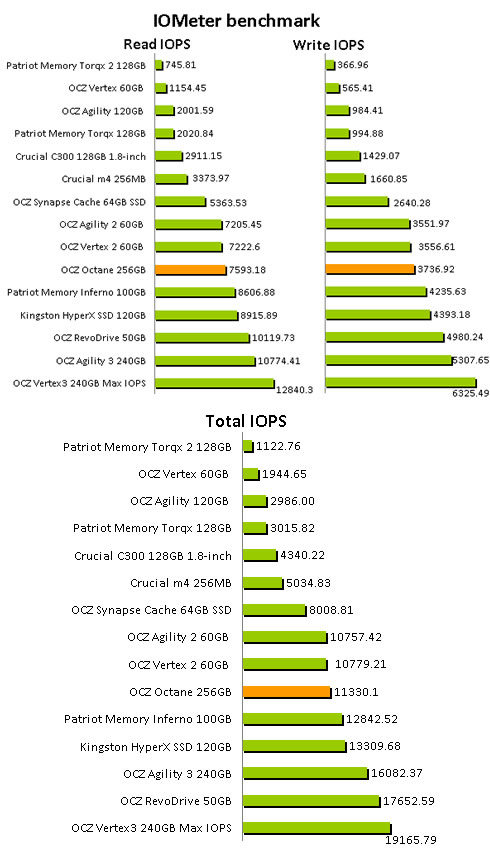
The next benchmark is the Anvil Pro, an ‘all inclusive’ storage utility. The software is tests transfer speeds as well as IOPS The IOPS tests can be configurable with preset testing scenarios for read, write and mixed IO.
We used the software with the OCZ Octane 256GB SSD and tested the drive with 0-fill compression (RAW), 8% compression, 25% compression, 45% compression, 67% compression and finally 100 % (incompressible data).
As you see in the results below, the drive's performance was very consistent and stable through out the tests, no matter if the files are compressed or not.
- 0-fill
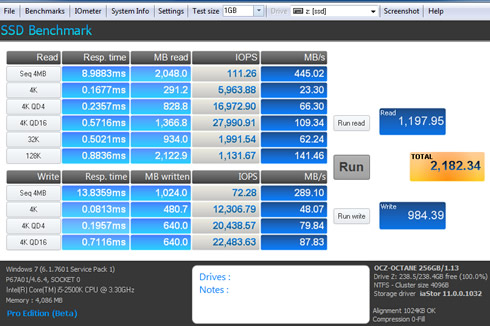
- Compression 8%
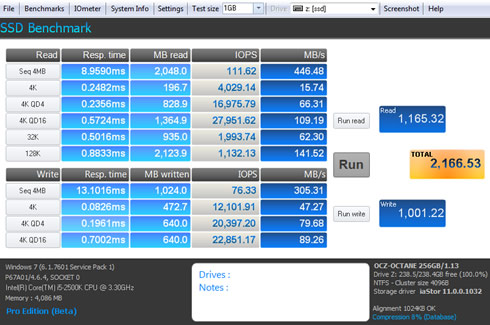
- Compression 25%
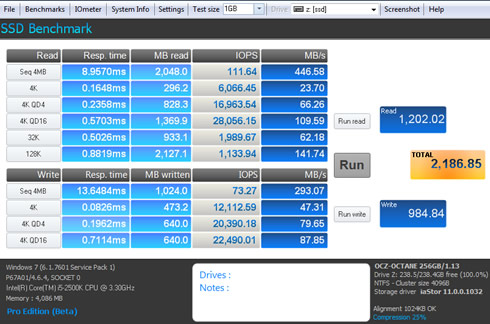
- Compression 45%
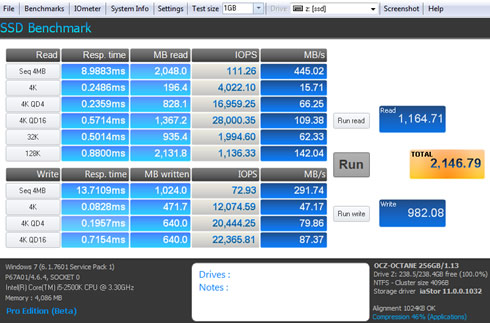
- Compression 67%
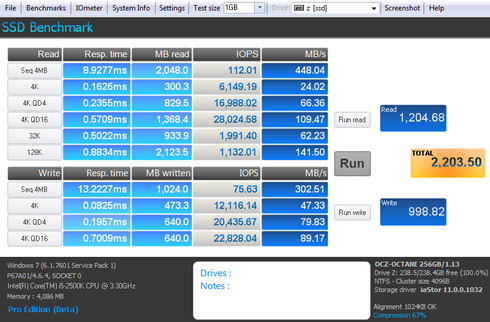
- Compression 100%
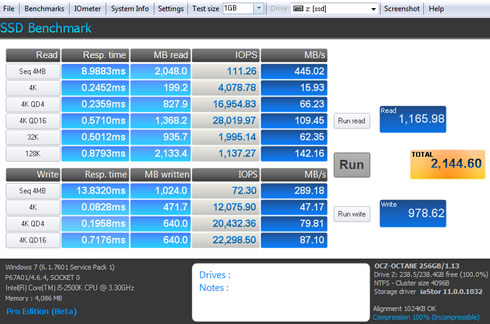
Below you see the results of Futuremark's PCMark 7 Professional edition. The drive scored 4912 points. Below you see the performance of the Octane 256GB SSD in various tasks defined by the software:
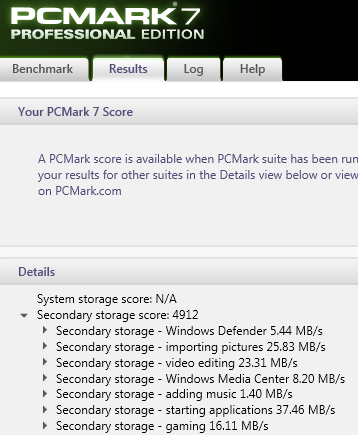
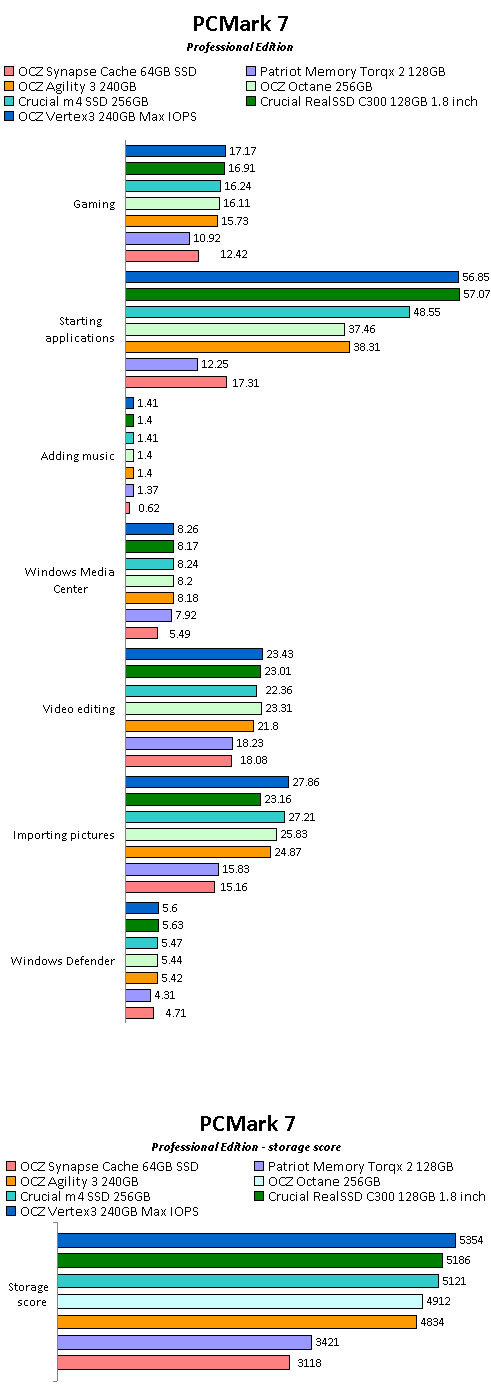
Review Pages





